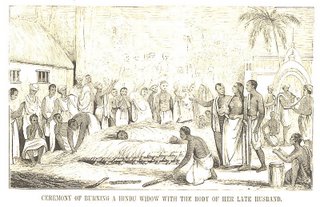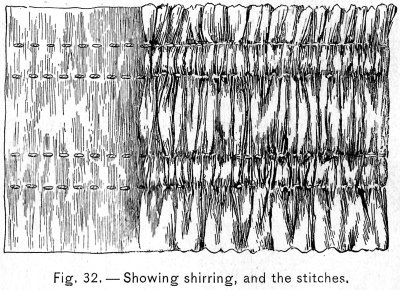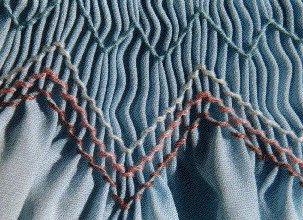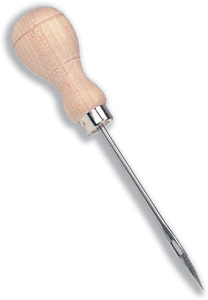blandish - verb - to coax or influence by gentle flattery; cajole; to use flattery or cajolery.
No real commentary, but notice how much fun the word cajolery is to say...
Friday, September 29, 2006
dada

dada - n - the style and techniques of a group of artists, writers, etc., of the early 20th century who exploited accidental and incongruous effects in their work and who programmatically challenged established canons of art, thought, morality, etc.
The picture shows Marcel Duchamp's Fountain (1917), a prime example of dadaist "art."
To compensate, here's Edward Arlington Robinson's (1869-1935) best (in my opinion) poem:
Old Eben Flood, climbing alone one night
Over the hill between the town below
And the forsaken upland hermitage
That held as much as he should ever know
On earth again of home, paused warily.
The road was his with not a native near;
And Eben, having leisure, said aloud,
For no man else in Tilbury Town to hear:
"Well, Mr. Flood, we have the harvest moon
Again, and we may not have many more;
The bird is on the wing, the poet says,
And you and I have said it here before.
Drink to the bird."
He raised up to the light
The jug that he had gone so far to fill,
And answered huskily:
"Well, Mr. Flood,Since you propose it, I believe I will."
Alone, as if enduring to the end
A valiant armor of scarred hopes outworn,
He stood there in the middle of the road
Like Roland's ghost winding a silent horn.
Below him, in the town among the trees,
Where friends of other days had honored him,
A phantom salutation of the dead
Rang thinly till old Eben's eyes were dim.
Then, as a mother lays her sleeping child
Down tenderly, fearing it may awake,
He set the jug down slowly at his feet
With trembling care, knowing that most things break;
And only when assured that on firm earth
It stood, as the uncertain lives of men
Assuredly did not, he paced away,
And with his hand extended paused again:
"Well, Mr. Flood, we have not met like this
In a long time; and many a change has come
To both of us, I fear, since last it was
We had a drop together.
Welcome home!"
Convivially returning with himself,
Again he raised the jug up to the light;
And with an acquiescent quaver said:
"Well, Mr. Flood, if you insist, I might.
"Only a very little, Mr. Flood--For auld lang syne.
No more, sir; that will do."
So, for the time, apparently it did,
And Eben evidently thought so too;
For soon amid the silver loneliness
Of night he lifted up his voice and sang,
Secure, with only two moons listening,
Until the whole harmonious landscape rang--
"For auld lang syne."
The weary throat gave out,
The last word wavered; and the song being done,
He raised again the jug regretfully
And shook his head, and was again alone.
There was not much that was ahead of him,
And there was nothing in the town below--
Where strangers would have shut the many doors
That many friends had opened long ago.
Thursday, September 28, 2006
sanguine

sanguine - adj - Cheerfully optimistic, hopeful, or confident; reddish; ruddy.
It may also be used as a synonym for sanguinary, but I have never seen or heard it used that way.
Tangent: I am just finishing E. L. Doctorow's novel The March, about Sherman's march through Georgia and the Carolinas, and I'm about to start Tom Wolfe's novel I Am Charlotte Simmons. I mention this because I suspect many people think I believe the novel is dead. There is some truth to that, especially when you consider the dim view I take of Stephen KIng and John Grisham, but I have read some good modern novels. A few that come to mind are The Bonfire of the Vanities and A Man in Full, both by Tom Wolfe, Lonesome Dove, by Larry McMurty, and The Mambo Kings Play Songs of Love (Rated X), by Oscar Hijuelos. I have also heard good things about J. K. Rowling's (the most photogenic of the lot, pictured here) Harry Potter novels (the last of which was selling 38,000 copies an hour at its peak!). So the novel isn't dead, but it's certainly in critical condition.
patchwork
Wednesday, September 27, 2006
bodkin
recusant

recusant - n - One of the Roman Catholics in England who incurred legal and social penalties in the 16th century and afterward for refusing to attend services of the Church of England; A dissenter; A nonconformist.
Very little is known about Shakespeare's life, which has resulted in much speculation. For instance, there is the (mostly) discredited idea that he was a Catholic recusant.
A small but dedicated group believes that Shakespeare didn't write the plays attributed to him. The main candidates for the title of "real" Shakespeare are Francis Bacon and Edward de Vere, 17th Earl of Oxford. A couple of people I respect (Joseph Sobran and Michael Hart) believe Oxford was Shakespeare; Sobran has written a book, Alias Shakespeare, which argues the case for Oxford at some length.
My advice to both of you is, if you plan to attain historical fame, be sure to leave a large paper trail.
Tuesday, September 26, 2006
fulsome
fulsome - adj - offensive to the taste or sensibilities; insincere or excessively lavish; especially offensive from excess praise
satyriasis

satyriasis - n - A syndrome, occurring in males, of excessive preoccupation with sexual gratification or conquest and leading to persistently transient and sometimes exploitative relationships.
Today's word is rated PG-13! You'll notice that bit about "persistently transient and sometimes exploitative relationships," which makes satyriasis a characteristic disorder for our unhappy times. Needless to say - but I'll say it anyway - the antonym is nymphomania, which in spite of Cosmopolitan and other such magazines, is considerably less widespread.
bobbin
Monday, September 25, 2006
suttee
suttee - n - A Hindu practice whereby a widow immolates herself on the funeral pyre of her husband: now abolished by law.
 This wicked practice was outlawed by the English. The widow's immolation was supposed to be voluntary, but it's been much debated how great an influence social pressures played in her decision.
This wicked practice was outlawed by the English. The widow's immolation was supposed to be voluntary, but it's been much debated how great an influence social pressures played in her decision.
It's amazing the extent to which Franz Boaz's cultural relativism has become part of the collective consciousness. Allen Bloom told how his studentss could never bring themselves to condemn suttee; their most common opinion was that the English shouldn't have been there in the first place. I tried Bloom's experiment on a friend. "Were the English right to put a stop to this monstrous practice?" I asked. I'll bet you can guess his answer.
 This wicked practice was outlawed by the English. The widow's immolation was supposed to be voluntary, but it's been much debated how great an influence social pressures played in her decision.
This wicked practice was outlawed by the English. The widow's immolation was supposed to be voluntary, but it's been much debated how great an influence social pressures played in her decision.It's amazing the extent to which Franz Boaz's cultural relativism has become part of the collective consciousness. Allen Bloom told how his studentss could never bring themselves to condemn suttee; their most common opinion was that the English shouldn't have been there in the first place. I tried Bloom's experiment on a friend. "Were the English right to put a stop to this monstrous practice?" I asked. I'll bet you can guess his answer.
darn
darn - v. - to mend with interlacing stitches; to embroider by filling with long running or interlacing stitches
Wikipedia is a little more descriptive:
Darning is a sewing technique for repairing holes or worn areas in fabric or knitting with needle and thread alone. It is often done by hand, but it is also possible to darn with a sewing machine. Hand darning employs the darning stitch, a simple running stitch in which the thread is "woven" in rows along the grain of the fabric, with the stitcher reversing direction at the end of each row.
Darning also refers to any of several needlework techniques worked in darning stitches:
Pattern darning is a type of embroidery that uses parallel rows of straight stitches of different lengths to create a geometric design.
Net darning, also called filet lace, is a 19th century technique using stitching on a mesh foundation fabric to imitate lace.
Needle weaving is a drawn thread work embroidery technique that involves darning patterns into barelaid warp or weft threads.
This picture didn't teach me anything, so I included it for a laugh. Apparently, this is a picture of "darning." Let me know if you can figure it out.

Wikipedia is a little more descriptive:
Darning is a sewing technique for repairing holes or worn areas in fabric or knitting with needle and thread alone. It is often done by hand, but it is also possible to darn with a sewing machine. Hand darning employs the darning stitch, a simple running stitch in which the thread is "woven" in rows along the grain of the fabric, with the stitcher reversing direction at the end of each row.
Darning also refers to any of several needlework techniques worked in darning stitches:
Pattern darning is a type of embroidery that uses parallel rows of straight stitches of different lengths to create a geometric design.
Net darning, also called filet lace, is a 19th century technique using stitching on a mesh foundation fabric to imitate lace.
Needle weaving is a drawn thread work embroidery technique that involves darning patterns into barelaid warp or weft threads.
This picture didn't teach me anything, so I included it for a laugh. Apparently, this is a picture of "darning." Let me know if you can figure it out.

Friday, September 22, 2006
shrew

shrew - n - A woman of violent temper and speech.
Guess which Shakespeare play is next on my list? I saw the movie, starring Richard Burton and Elizabeth Taylor, in 1967. Burton in Elizabethan costume brought down the house. (There was a popular misconception that Elizabeth Taylor was just another pretty face. She certainly was pretty, but she was also a first-rate actress, as you can see in such movies as Raintree County, Cat on a Hot Tin Roof (left, with Paul Newman), Suddenly Last Summer, and Who's Afraid of Virginia Woolf?)
Thursday, September 21, 2006
quilt
scientism
scientism - n - The belief that the assumptions, methods of research, etc., of the physical and biological sciences are equally appropriate and essential to all other disciplines, including the humanities and the social sciences.
This plausible but bad idea is the root of many, maybe most, modern evils and is the basis of such black arts as sociology, psychology, and economics.
This plausible but bad idea is the root of many, maybe most, modern evils and is the basis of such black arts as sociology, psychology, and economics.
Wednesday, September 20, 2006
ontology

ontology - n - The branch of metaphysics that studies the nature of existence or being as such.
I was - and occasionally still am - deeply interested in philosophical questions. The question ontology deals with is, "What is reality?" Bishop George Berkeley (1685-1753) thought reality was no more than sensual impressions projected on our senses from God's mind, a notion that holds up surprisingly well against attempts at refutation. Ronald Knox wittily summarized Berkeley's thought in two limericks:
There was a young man who said "God
Must think it exceedingly odd
If he finds that this tree
Continues to be
When there's no one about in the Quad."
"Dear Sir, your astonishment's odd;
I am always about in the Quad
And that's why this tree
Will continue to be
Since observed by Yours faithfully, God."
pleat
pleat - noun - a fold in cloth made by doubling the marterial upon itself then pressing or stitching it into place.
This is a technique of gathering a wide amount of cloth into a narrower circumference, most commonly seen in skirts or kilts.
(I think I beat Natalie to this word)
This is a technique of gathering a wide amount of cloth into a narrower circumference, most commonly seen in skirts or kilts.
(I think I beat Natalie to this word
embroidery
Tuesday, September 19, 2006
macrame
macrame - noun - an elaborately patterned lace-like webbing made of hand-knotted cord, yarn or the like and used for wall decorations, hanging baskets, garments, accessories, etc; the technique or art of producing such a work.
I have always enjoyed knots. At one point in my life I could name off a couple of dozen knots, show you how to tie them, explain their use as well as the history of the knot. Macrame has been one of those endeavors in the knot world I've never taken to, but have always wanted to try. It seems to be going the way of tatting these days (which I have tried successfully, I might add), you just don't see much of it around any more. Still, I might have to find some time under a rock or something and give this a try. It might be fun.
I have always enjoyed knots. At one point in my life I could name off a couple of dozen knots, show you how to tie them, explain their use as well as the history of the knot. Macrame has been one of those endeavors in the knot world I've never taken to, but have always wanted to try. It seems to be going the way of tatting these days (which I have tried successfully, I might add), you just don't see much of it around any more. Still, I might have to find some time under a rock or something and give this a try. It might be fun.
shirring
shirring - n. - a decorative gathering (as of cloth) made by drawing up the material along two or more parallel lines of stitching
I'm back, too! I know you were dying to learn more sewing words!
This word is in the definition of my previous word "smocking". I'm guessing that means shirring and smocking are the same thing with two different words to describe it. Here's another picture to help visualize (it's not so pretty but I like that it shows the stitching):

I'm back, too! I know you were dying to learn more sewing words!
This word is in the definition of my previous word "smocking". I'm guessing that means shirring and smocking are the same thing with two different words to describe it. Here's another picture to help visualize (it's not so pretty but I like that it shows the stitching):

Romanesque

Romanesque - adj - Noting or pertaining to the style of architecture prevailing in western or southern Europe from the 9th through the 12th centuries, characterized by heavy masonry construction with narrow openings, features such as the round arch, the groin vault, and the barrel vault, and the introduction or development of the vaulting rib, the vaulting shaft, and central and western towers for churches.
I can't let Jeff have all the fun, and I've got a personal anecdote bearing on today's word.
I'm not just being nerdish when I emphasize the importance of translation when you select a book originally written in a foreign language. I almost went nuts reading Regine Pernoud's excellent Those Terrible Middle Ages, until I realized that the whole thing made sense once I substituted 'Romanesque' for 'Roman'.
For an example of Romanesque architecture, here's the Cathedrel at Aachen.
Monday, September 18, 2006
recidivism

recidivism - n - Repeated or habitual relapse, as into crime.
A major problem with our legal system is that it leaves convicts few options other than continuing in a life of crime. In theory, a criminal has paid his debt to society once he's finished serving his sentence. Realistically, he's unemployable at any but the most menial jobs, which means he's forced to keep on paying that supposedly discharged debt indefinitely. Is it any surprise that recidivism is so common?
George Bernard Shaw(1856-1950), a Fabian socialist who claimed to be a better playwright than Shakespeare, had an idea that bears closer examination. Shaw recognized the problem I've outlined above and suggested a solution. Suppose a man is convicted of a non-violent crime, something other than rape or murder, e.g., robbing the local Quikki Mart. Shaw suggested releasing the man with a warning and with no public record kept. Suppose our released criminal doesn't take the hint and robs Apu a second time. Release him with a sterner warning and still nothing on the public record. If he falls back a third time, execute him for being an incorrigible criminal. The more I think about it, the more I can't help feeling that this may be the best solution.
Friday, September 15, 2006

ectoplasm - n - The visible substance believed to emanate from the body of a spiritualistic medium during communication with the dead; am immaterial or ethereal substance, especially the transparent corporeal presence of a spirit or ghost.
I'm back!
Today's word was inspired by Richard Matheson's novel Hell House, which is one of the best ghost stories I've ever read. Highly recommended. (The photograph was taken December, 1948, in total darkness using a Kodak Infrared plate.)
Thursday, September 14, 2006
fanfaronade
fanfaronade - noun - swaggering; empty boasting; blustering manner or behavior; ostentatious display; fanfare
Wednesday, September 13, 2006
Tuesday, September 12, 2006
cruciform
cruciform - adj - forming or arranged in a cross
This is popular cathedral design. Basically, the floor plan of the church is laid out in the shape of a cross on the ground. The arms provide small office space, chapels or confessionals. The main body of the church is for the congregation while the head of the building contains the altar and pulpit.
This is popular cathedral design. Basically, the floor plan of the church is laid out in the shape of a cross on the ground. The arms provide small office space, chapels or confessionals. The main body of the church is for the congregation while the head of the building contains the altar and pulpit.
Monday, September 11, 2006
post
post - noun - a strong piece of timber, stone, metal or the like, set upright as a support; a point of attachment; a place for displaying notices, etc; a position in the military as a place of service, such as a fort, base, ship or station
Of course, I'm focusing on the architectural version of this word. Before Roman times, the most common construction type was post-and-lintel, which is basically an upright support surmounted by a horizontal cross-piece on which a roof (for example) was laid. Not all cases of post-and-lintel construction provided for supporting roofs - note one of the oldest examples of this type of construction was at Stonehenge.

Another well known and extremely widely duplicated is the Parthenon.

If a building could take on human traits, the Parthenon would be the Jesus Christ of buildings. No other building has had as much influence on architecture in all of history since it was constructed. You can't go to any city (nearly anywhere) and look at town halls, courts or other official buildings and not see them built in replica of this ancient Greek building.
Of course, I'm focusing on the architectural version of this word. Before Roman times, the most common construction type was post-and-lintel, which is basically an upright support surmounted by a horizontal cross-piece on which a roof (for example) was laid. Not all cases of post-and-lintel construction provided for supporting roofs - note one of the oldest examples of this type of construction was at Stonehenge.

Another well known and extremely widely duplicated is the Parthenon.

If a building could take on human traits, the Parthenon would be the Jesus Christ of buildings. No other building has had as much influence on architecture in all of history since it was constructed. You can't go to any city (nearly anywhere) and look at town halls, courts or other official buildings and not see them built in replica of this ancient Greek building.
Friday, September 08, 2006
basilisk
vade mecum
vade mecum - noun - a book for ready reference; a manual; a handbook; a useful thing that one regularly carries about
smocking
smocking - a decorative embroidery or shirring made by gathering cloth in regularly spaced round tucks
You guys are super lucky! I have chosen my theme for my words and it is...(dun, dun, dun)...SEWING! I'll try and have pictures for everything that I can. This first picture captures smocking pretty well I think. I hope that you can get the whole picture of what it is even though the picture is pretty close up.

You guys are super lucky! I have chosen my theme for my words and it is...(dun, dun, dun)...SEWING! I'll try and have pictures for everything that I can. This first picture captures smocking pretty well I think. I hope that you can get the whole picture of what it is even though the picture is pretty close up.

Thursday, September 07, 2006
venial
venial - adj. - of a kind that can be remitted, forgiveable, pardonable; meriting no particular censure or notice, excusable
Maybe I need to find a theme with words that I can acutally write something about every day. I'll work on that. I'm boring myself!
wolfjb102070, how's commenting working out for you?
Maybe I need to find a theme with words that I can acutally write something about every day. I'll work on that. I'm boring myself!
wolfjb102070, how's commenting working out for you?
avaunt

avaunt - adv - [archaic] Away; hence.
For example, "Avaunt! Hie thee hence!" might be translated as, "Get out, and be quick about it!" This example also shows why translations of Shakespeare into modern English just don't work. As Robert Frost (1874-1963, shown at left) said, "Poetry is what gets lost in the translation." (Tangent: That's why I recommend E. V. Rieu's prose translation of Homer's Iliad, which may still be available as a Penguin Classics paperback.)
Wednesday, September 06, 2006
flying buttress

flying buttress - noun - a segmental arch transmitting an outward and downward thrust to a solid buttress that through it's inertia transforms the thrust into a vertical one; an arched masonry support serving to bear thrust, as from a roof or vault, away from a main structure to an outer pier or buttress.
These are the arches which look like ribs on the outside of a building. They are intended to provide extra stability to walls which have high vaulted ceilings or heavy roofs or cupolas on top which happen to cause the walls to drift outward. Remember, gravity works.
prostrate
prostrate - adj. - stretched out with face on the ground in adoration or submission, lying flat; completely overcome and lacking vitality, will, or power to rise; trailing on the ground, procumbent
...just singing Christmas carols this morning for some unknown reason (sigh).
...just singing Christmas carols this morning for some unknown reason (sigh).
silly

silly - adj - [Archaic] weak; helpless; rustic, plain; homely.
When one of Shakespeare's male characters calls a woman silly, he's not insulting her; in every instance I've seen so far, he's pointing out that she's helpless, incapable of defending herself should a man attack her. Some of his women describe themselves that way.
I'm currently reading Richard III, which strikes me as being the best of his early plays. It's the story of one of English history's most fabulous villains, the limping, hunchbacked Richard, Duke of Gloucester (pronounced Gloss-ter), who lies and murders his way to the English crown. It contains two of Shakespeare's most memorable lines, both spoken by Richard. In fact they're the first and last lines Richard speaks:
Now is the winter of our discontent
Made glorious summer by this sun of York. . .
A horse! A horse! My kingdom for a horse!
That second line is so familiar that it's been used by God-only-knows how many comedians: "A horse! A horse! My kingdom for a horse! I haven't had a winner in six months!" (Bada-boom!)
Richard is so inventive, so persuasive, and so enthusiastic in his villainy that you can't wait to see what he'll get away with next. Highly recommended.
Tuesday, September 05, 2006
sentient
sentient - adj. - responsive to or conscious of sense impressions; aware; finely sensitive in perception or feeling
wherefore

wherefore - adv - For what purpose or reason; why; therefore.
There was an old saying among Elizabetans, that "For every why there's a wherefore." Actually, it was probably more of a joke, along the lines of "Ask me no questions and I'll tell you no lies."
One of Shakespeare's most famous soloquies begins with Juliet asking, "O Romeo, Romeo, wherefore art thou, Romeo?" This is usually misinterpreted as Juliet asking where's Romeo. As a matter of fact, the correct reading is that she's asking why he's named Romeo, what difference would it make if he were named something else. The obvious "hidden" meaning, is that he's a Montague and she's a Capulet, and both families have a long-standing feud. She goes on to ask "What's in a name?" and observes that a rose by any other name would smell as sweet.
Romeo and Juliet was a huge popular success when first performed, and continues to be successful both as pastiche (West Side Story), faithful rendition on film (from Franco Zefirelli), and in a new setting, again on film (with Leonardo DiCaprio and Clare Danes in the title roles).
My own opinion is that Romeo and Juliet is minor Shakespeare, but easy enough to make a good starting poin for those new to his plays.
Friday, September 01, 2006
cupola
cupola - noun - a rounded vault resting on a usually circular base and forming a roof or a ceiling; a small structure built on top of a roof; a vertical cylindrical furnace for melting iron in the foundry that has tuyeres and tapping spouts near the bottom; a raised observation post in the roof of a railroad caboose.
Lots of definitions for this word. We tend to think of this structure as the dome on top of a building. Like the one recently added to our own state capital building. However, this is and interesting structure. The most common form for this structure was originally found on top of St Peter's Basilica in Rome. Domes are particulaly cool to look at, and a fun engineering problem. Well, not so much any more, but Leonardo Da Vinci had some issues with them. If I recall correctly, he was the architect who finished the work on St. Peter's after the original suddenly died. The cupola has one major problem with it - gravity. All that weight tends to push the supporting vaults outward causing the whole thing to fall flat. Try this as an example, cut an orange in half and take out the fruit. Leave the empty half orange on the top of the counter and press gently on the top of the orange. Without support under it, the top just caves in. With the other half, press similarly on it. Supported underneath the "top" of the dome, but the force has to go somewhere, so it goes out the sides (typically). It would be bad form to have the cupola come crashing down on the worshipers below, so the solution to the problem was to find a way to confine the supporting vaults. The answer is five very sturdy chains at various points inside the structure to reinforce the vaults and keep them from sliding outward as gravity takes affect on the whole structure.
Lots of definitions for this word. We tend to think of this structure as the dome on top of a building. Like the one recently added to our own state capital building. However, this is and interesting structure. The most common form for this structure was originally found on top of St Peter's Basilica in Rome. Domes are particulaly cool to look at, and a fun engineering problem. Well, not so much any more, but Leonardo Da Vinci had some issues with them. If I recall correctly, he was the architect who finished the work on St. Peter's after the original suddenly died. The cupola has one major problem with it - gravity. All that weight tends to push the supporting vaults outward causing the whole thing to fall flat. Try this as an example, cut an orange in half and take out the fruit. Leave the empty half orange on the top of the counter and press gently on the top of the orange. Without support under it, the top just caves in. With the other half, press similarly on it. Supported underneath the "top" of the dome, but the force has to go somewhere, so it goes out the sides (typically). It would be bad form to have the cupola come crashing down on the worshipers below, so the solution to the problem was to find a way to confine the supporting vaults. The answer is five very sturdy chains at various points inside the structure to reinforce the vaults and keep them from sliding outward as gravity takes affect on the whole structure.
irascible
irascible - adj. - marked by hot temper and easily provoked anger
It's funny that y'all were talking about using blogs as a response to reading as opposed to what we're doing because we're all defining words we find in our reading anyway.
Another wonderful word from J.K. Rowling.
It's funny that y'all were talking about using blogs as a response to reading as opposed to what we're doing because we're all defining words we find in our reading anyway.
Another wonderful word from J.K. Rowling.
excrement
excrement - n - [obsolete] Matter extruded from the body such as hair and nails.
Here's a Shakespearean word that can create problems for a modern reader. When Armado in Love's Labor's Lost talks about handling excrement, he's referring to his mustache.
Here's a Shakespearean word that can create problems for a modern reader. When Armado in Love's Labor's Lost talks about handling excrement, he's referring to his mustache.
Subscribe to:
Comments (Atom)






